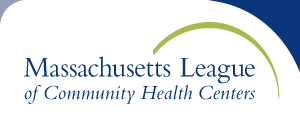Cancer Screening
The League provides training and technical assistance to Massachusetts community health centers with the goal of supporting their efforts to increase breast, cervical and colorectal cancer screening rates. An increase in screening rates will reduce illness and death caused by breast, cervical and/or colorectal cancer.
General Cancer Prevention & Screening Resources
- 2014 Immunization Schedules (for HPV Vaccine)
- American Cancer Society
- Cancer Resource Foundation
- CDC, Cancer Prevention and Control
- CDC, National Center for Health Statistics
- Healthy People 2020
- Massachusetts Comprehensive Cancer Control and Prevention Program
- Massachusetts Cancer Registry
- Massachusetts Department of Public Health Breast & Cervical Cancer Program
- Massachusetts Health Promotion Clearinghouse
- Massachusetts Health Quality Partnership Adult Preventive Care Recommendations
- National Cancer Institute
- Studies of Community Health Center Quality of Care
- United States Preventive Services Task Force cancer screening guidelines
- Vaccine Information Statements (VIS)
Breast Cancer
Excluding skin cancer, breast cancer is the most common type of cancer among American women. After lung cancer, it is the second leading cause of cancer death in women. However, it can be treated and the key is early detection. The recommendation is a biennial screening mammography for women between the ages of 50 and 74 years. (Updated 3/14/14)
Clinical Guidelines
The current clinical recommendations on breast cancer screening from the US Preventive Services Task Force can be found here.
Continuing Education/Professional Development
- Screening for Breast Cancer: Update on Guidelines and the Ongoing Controversy - Priscilla J. Slanetz MD, MPH, FACR, Associate Professor of Radiology, Harvard Medical School Program Director, Radiology Residency, BIDMC summarizes the existing data and controversies surrounding screening for breast cancer, list screening tools and provide supporting evidence for these options and screening intervals
- Patient Navigator E-learning - This hybrid of in-person and on-line training courses provides specifics in breast cancer screening
- Online Education and Training for Health Professionals - A National Cancer Institute resource
- Screening for Breast Cancer: Update on Guidelines and the Ongoing Controversy - New resource developed August 2013 through Massachusetts Medical Society and the Massachusetts Department of Public Health
Patient Education Materials
Resources
- Massachusetts Department of Public Health Breast & Cervical Cancer Program
- Massachusetts Health Quality Partnership Adult Preventive Care Recommendations
- United States Preventive Services Task Force cancer screening guidelines
Cervical Cancer
It is recommended that women get a Pap test every three years after the age of 21 and that males and females be recommended and provided the Human Papillomavirus (HPV) vaccine between 9 and 26 years of age. (Updated 3/14/14)
Clinical Guidelines
The current clinical recommendations on cervical cancer screening from the United States Preventive Services Task Force (USPSTF) can be found here. (Updated 3/14/14)
Massachusetts HPV Vaccination Partnership 2013-2014
In 2013, the Massachusetts Department of Public Health (MDPH) was one of eleven grantees nationwide awarded federal funding to increase adolescent HPV vaccination rates in Massachusetts. The MDPH Immunization Program, through the creation of a HPV partnership, is working with Massachusetts organizations, including The League to developed effective and innovative programs to increase HPV vaccine coverage.
Your participation is welcome! For more information or to join the Massachusetts HPV Vaccination Partnership, please contact Mary Leary.
Take the HPV Challenge: Click Here for details
URGENT CALL TO PREVENT CANCER - TAKE THE HPV VACCINE CHALLENGE - YOUR HELP IS NEEDED TO INCREASE HPV VACCINATION RATES
Health care providers and public health professionals in Massachusetts and across the country have started a campaign to dramatically increase
adolescent vaccination rates against HPV. For each year we stay at current vaccination rates, girls and boys will go on to acquire cervical, oral,
anal and other HPV related cancers.
THE PROBLEM
Our three-dose HPV vaccine coverage has stagnated at 33% nationally and missed opportunities for vaccination are high. The CDC, AAP and AAFP
recommend that all 11-12 year-olds receive HPV, meningococcal, and Tdap vaccines together.
WHAT CAN PROVIDERS DO?
The most significant factor in parents' decision to vaccinate their children with HPV vaccine is a clear, brief, and strong recommendation from the
child's healthcare provider. Research shows that simply changing the wording used to introduce the HPV vaccine makes a tremendous difference. Try
changing your discussion for one week, and see how it improves your vaccine acceptance.
PROVIDERS: TAKE THE HPV VACCINE CHALLENGE
Start your vaccine discussion with all 11 and 12 year-olds and their parents by saying: "Your child needs 3 vaccines today - HPV, Tdap, and
meningococcal."
This simple change works because by putting HPV first, parents perceive that it's a normal, recommended vaccine, not a controversial or optional vaccine. CDC provides a "Tips and Time-savers for Talking with Parents about HPV Vaccine" resource that translates research into effective communication tools:
- CDC Tips for Talking with Parents
- Massachusetts Health Provider Challenge
- Dear Colleague Letter from AAP, AAFP, AAP, ACOG. ACP, CDC, IAC
Continuing Education/Professional Development
- HPV - You Are the Key with Dr. Rebecca Perkins - A webinar podcast (audio and slides); a short registration is required; the presentation slides are also accessible here
- Cervical Cancer Screening Course - Annekathryn Goodman, MD Assistant Director, Vincent Gynecologic Oncology Division, Massachusetts General Hospital and Associate Professor, Department of Obstetrics, Gynecology and Reproductive Biology, Harvard Medical School presents a CME activity formatted into a series of four slide presentations that will explain the revised guidelines specifically for primary care practitioners
- Patient Navigator E-learning - This hybrid of in-person and on-line training courses includes five modules, one module is on breast cancer screening
Patient Education Materials
- Basic HPV Fact Sheet (English)
- Basic HPV Fact Sheet (Spanish)
- Massachusetts Department of Public Health Cervical Cancer Campaign
- Print Materials in English, Spanish, Vietnamese, Korean, Native American
Parent Education Materials
- A Parent's Guide to Preteen and Teen HPV Vaccination, Immunization Action Coalition (IAC)
- HPV Disease and the Vaccine That Prevents Them
Provider Resources
- AAP Policy Statement, HPV Vaccine Recommendations
- Ask The Experts, Human Papillomavirus, IAC (CDC experts answer challenging and timely
- Adolescent Vaccines Fact Sheet (English)
- Adolescent Vaccines Fact Sheet (Spanish)
- HPV Vaccine Resources for Healthcare Professionals (provides various tools for your practice and handouts for patients and parents)
- CDC Video: Doctors Recommend HPV Vaccine
- CDC Matte Articles (ready-to-print and free to use in any publication)
- HPV Vaccine Clinician Fact Sheet
- "The Pink Book" HPV Chapter
Colorectal Cancer
All patients ages 50 and older should be screened for colorectal cancer. Most health plans, including Medicaid and Medicaid Managed Care Plans, reimburse for age- and risk-appropriate colorectal cancer screening tests. The United States Preventive Services Task Force (USPSTF) recommends that average risk men and women ages 50-75 get regular colorectal cancer screening with any of three tests: a high-sensitivity, multislide fecal occult blood test (FOBT/FIT) every year; a flexible sigmoidoscopy every 5 years; or a colonoscopy every 10 years. (Updated 3/14/14)
Clinical Guidelines
The current clinical recommendations on colorectal cancer screening from the United States Preventive Services Task Force (USPSTF) can be found here.
Colon Cancer Screening & Education Program (CCSEP)
In collaboration with the Colon Cancer Coalition and with funds raised through the Boston Get Your Rear in Gear 5K, the League created the Colon Cancer Screening & Education Program (CCSEP) to address needs related to colon cancer screening and treatment not covered by insurance representing the first-ever League funding initiative where health center patients receive direct help with covering expenses related to colon cancer screening and treatment which are not reimbursable through health insurance.
Community health center patients face a distinct set of challenges in accessing health care; ninety percent of League patients have incomes below 200% of the federal poverty level, leaving them with limited resources to pay for insurance deductibles and co-pays, as well as child care, transportation and other costs associated with screening and treatment. The primary mission of the League and health centers is to eliminate barriers to care for the vulnerable populations they serve. The funding from the Colon Cancer Coalition will aid in these efforts by allowing health center providers to provide targeted financial assistance to patients on a case-by-case basis. Eligible expenses through the CCSEP include:
- Pre- and post- colonoscopy prep products and medications,
- Transportation to and from procedures,
- Translations services needed during procedures,
- Co-pays and deductibles,
- Cost of diagnostics resulting from screening, i.e.: removal of polyps, and
- Cost of ancillary services needed to support patient through colon cancer treatment, i.e.: Day care expenses, Meal expenses, Home care expenses, and Medication expenses.
For more information about CCSEP please contact Cheryl Shaughnessy.
Continuing Education/Professional Development
***NEW*** Improving Colorectal Cancer Screening Rates in Community Health Center Webinar & Resources-
This May 29, 2015 recorded webinar provides a brief overview of colorectal cancer prevention and screening recommendations and why CHCs should improve colorectal cancer screening rates. It also describes Fecal Immunochemical Test (FIT) / Guaiac-based fecal occult blood test (FOBT) as equally valid screening options for average risk populations and resources available to support community health centers.
- To view the webinar: https://communityhealth.adobeconnect.com/p5rf6kdmg1b/.
- To view the slides from the webinar, click here.
Resources mentioned during the May 29, 2015 Webinar:
- Steps for Increasing Colorectal Cancer Screening Rates: A Manual for Community Health Centers (9/2014)
- Community Guide Increasing Breast, Cervical, and Colorectal Cancer Screening
- NCCRT Communications Guidebook
- Clinician's Guide:
- Massachusetts Health Promotion Clearinghouse - Massachusetts Department of Public Health developed materials available for immediate download and printed materials available for ordering
- Make It Your Own (MIYO) Portal - Web-based Colorectal Cancer Screening Educational Materials Creator. Choose from evidence-based approaches like small media and client reminders, and then customize the materials for your audience by choosing from a library of focus-tested images, messages and designs
- Link to Dr. James Allison's recorded webinar 'There is No One "Best" CRC Screening Test: The Proof and the Benefits of Getting FIT'
- Link to recorded CRC Webinar on Office Reminder Systems
Webinar 1:3 - Colorectal Cancer Screening Clinical Guidelines and Evidence-Based Approaches
This webinar provides the latest clinical guidelines for colorectal cancer screening, the most commonly used screening tests are reviewed, the
4 evidence-based approaches to improving colorectal cancer screening rates are described and FOBT and FIT are discussed as options for colorectal
cancer screening that may be especially beneficial for average-risk populations being served by Massachusetts Community Health Centers. To view:
Webinar 2:3 - Process Effective Improvement Efforts
This webinar provides a framework and tools for understanding current processes and gaining buy-in to improve colorectal cancer screening rates.
The 4 evidence-based approaches to improving colorectal cancer are discussed as well as components of the National Colorectal Cancer Screening
Roundtable's Toolkit. To view:
Webinar 3:3 - Best Practices in Community Health Centers
This webinar provides a quick review of the latest clinical guidelines, but mainly focuses on transitioning from gFOBT to iFOBT (FIT) and tools
and resources for gaining buy-in to improve colorectal cancer screening rates. The 4 evidence-based approaches to improving colorectal cancer are
discussed as well as components of the National Colorectal Cancer Screening Roundtable's Toolkit.
- To view the overview: https://communityhealth.adobeconnect.com/p8m7fy82h58/
- To view the transition from gFOBT to iFOBT: https://communityhealth.adobeconnect.com/p71hoqzx56j/
- To view the Research Study: https://communityhealth.adobeconnect.com/p8lhwxskakl/
Other resources include:
- Colorectal Cancer Screening Guidelines - An online CME program presented by Dr. Paul C. Schroy III, M.D., M.P.H., Professor of Medicine, Boston University School of Medicine Director of Clinical Research, GI Section, Boston Medical Center shares screening options and provide supporting evidence for these options and summarize screening recommendations and interval screenings.
- Patient Navigator E-learning - This hybrid of in-person and on-line training courses of five modules, one module on colon cancer screening
- Online Education and Training for Health Professionals - Resource from the National Cancer Institute
Patient Educational Materials
- Massachusetts Health Promotion Clearinghouse - Massachusetts Department of Public Health developed materials available for immediate download and printed materials available for ordering
- Make It Your Own (MIYO) Portal - Web-based Colorectal Cancer Screening Educational Materials Creator. Choose from evidence-based approaches like small media and client reminders, and then customize the materials for your audience by choosing from a library of focus-tested images, messages and designs
- Colorectal Cancer Basic Fact Sheet - Color
- Colorectal Cancer Screening by Celebrities - Terrance Howard, Jimmy Smits (English/Spanish), Diane Keaton, Morgan Freeman, Rosa y Carlos (Spanish)
- Get Tested For Colon Cancer: Here's How. - A 7-minute video reviewing options for colorectal cancer screening tests, including test preparation. Available as DVD, or you can refer patients to the URL to view from a computer
Resources
- An interactive, online version of CRC Clinician's Guide, has been launched to offer an interactive, web-based version of the CRC Evidence Based Toolkit and Guide
- Colorectal Cancer Screening Guideline - New resource developed August 2013 through Mass Medical Society and the MA Department of Public Health
- Colorectal Cancer Screening Clinician's Guide: Cancer Screening Action Plan - This shorter version of the Colorectal Cancer Screening Clinician's Toolbox and Guide was designed for busy clinicians after collecting extensive feedback from physicians on the original Guide
- FLU/FIT-FOBT - FLU-FIT and FLU-FOBT Programs help clinical teams increase access to colorectal cancer screening by offering home tests to patients at the time of their annual flu shots
- How to Increase Colorectal Cancer Screening Rates in Practice: A Primary Care Clinician's Evidenced-Based Toolbox and Guide - Efficient ways for practices to get every eligible patient the colorectal cancer screening tests he or she needs including evidenced-based tools, sample templates and strategies that can help practices improve their screening performance
- Options for Increasing Colorectal Cancer Screening Rates in Community Health Centers - Researchers from the University of North Carolina Lineberger Comprehensive Cancer Center, adapted the CRC Clinician's Guide for use in the Community Health Center setting
- Strategy Paper Expanding Colon Cancer Screening at Community Health Centers
- Steps for Increasing Colorectal Cancer Screening Rates: A Manual for Community Health Centers
Updated June 2015
Prostate Cancer
Prostate Cancer remains the 2nd leading cause of death in men. This year alone, more than 28,000 men will die from prostate cancer. Since 2012, the US Preventive Services Task Force recommend against PSA-based screening for prostate cancer as there is a very small potential benefit and significant potential harms. Clinicians are urged to consider this evidence and not screen their patients with a PSA test unless the individual being screened understands what is known about PSA screening and makes the personal decision that even a small possibility of benefit outweighs the known risk of harms. Screening tests for prostate cancer are under study, and there are screening clinical trials taking place in many parts of the country. Information about ongoing clinical trials is available from the National Cancer Institute (NCI) website. (Updated 3/14/14)
Clinical Guidelines
The current clinical recommendations on prostate cancer screening from the United States Preventive Services Task Force (USPSTF) can be found here. (Updated 3/17/14)
Continuing Education/Professional Development
- Patient Navigator E-learning - This hybrid of in-person and on-line training course of five modules, one module on prostate cancer screening
- American Cancer Society ProstateMD Clinicians' Information Source
Patient Education
- ACS Prostate Cancer Informed Decision Making Video for Patients
- ACS Prostate Screening IDM Patient Tool - Guide for men to use in making an informed decision about asymptomatic prostate cancer screening
- Benefits & Harm of Prostate Cancer Screening
- Talking with your patients about prostate cancer screening
- American Cancer Society Patient Education Information












